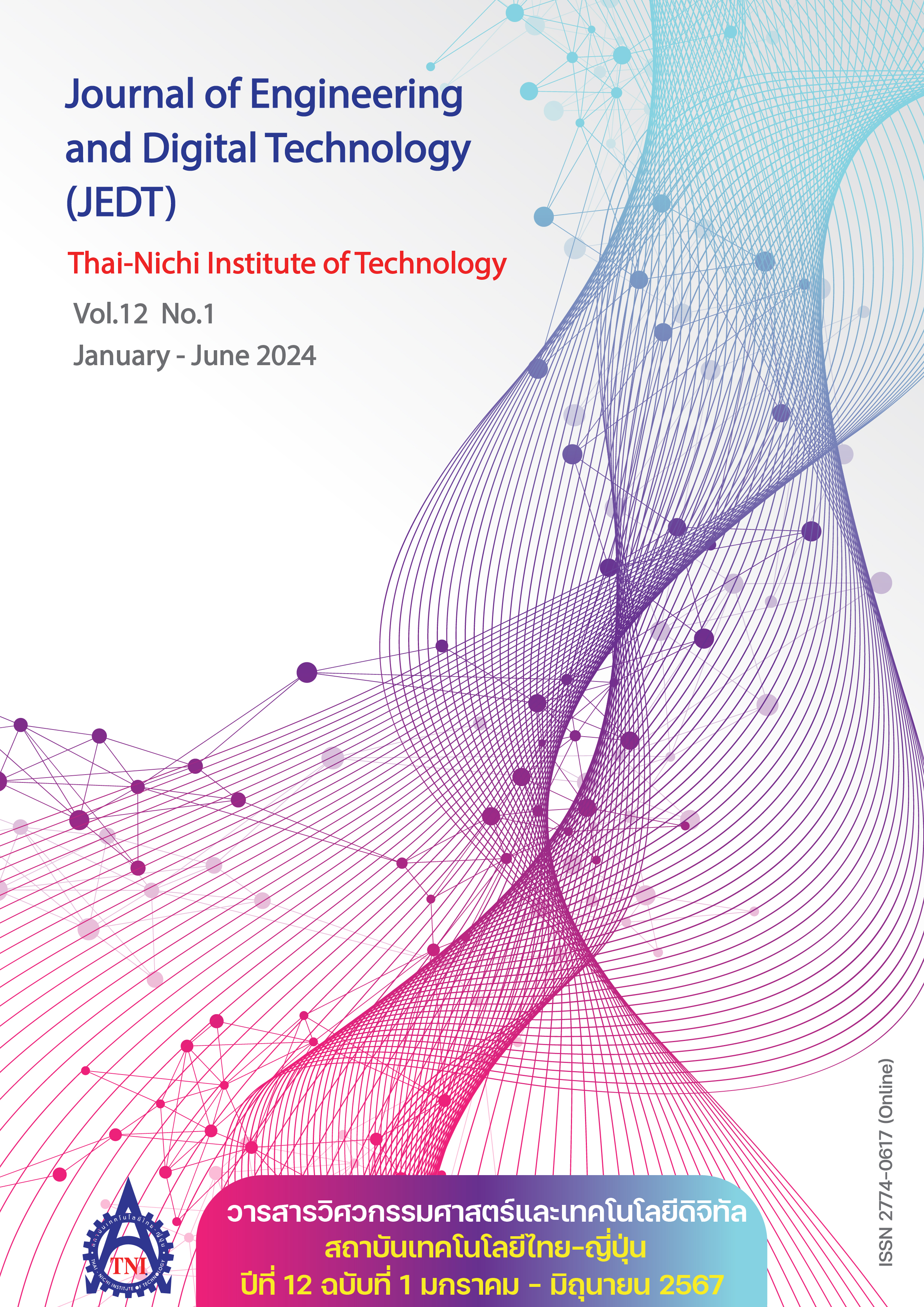An Application of Text Mining and Association Rule Mining to Job and Skill Recommendations for IT Jobs
Main Article Content
Abstract
This research implemented a web application that employed text mining to extract skill requirements from online IT job announcements, and association rule mining to discover the co-occurrence of hard skills (technical abilities) and soft skills (personal competencies) specified by the jobs. The matching score of each job was calculated by comparing hard skills extracted from the job announcement with a user’s current hard skills. Jobs were recommended to the user based on their matching scores. In addition, the discovered association rules were used to recommend new skills as follows: (1) based on the user’s current hard skills as antecedents, new hard skills as consequences would be recommended; and (2) based on the user’s current hard skills or soft skills as antecedents, new soft skills as consequences would be recommended. Online training courses to obtain such new skills were also recommended. The application was evaluated by 40 users, and received high satisfaction scores on both job recommendation and skill recommendation.
Article Details

This work is licensed under a Creative Commons Attribution-NonCommercial-NoDerivatives 4.0 International License.
Article Accepting Policy
The editorial board of Thai-Nichi Institute of Technology is pleased to receive articles from lecturers and experts in the fields of engineering and technology written in Thai or English. The academic work submitted for publication must not be published in any other publication before and must not be under consideration of other journal submissions. Therefore, those interested in participating in the dissemination of work and knowledge can submit their article to the editorial board for further submission to the screening committee to consider publishing in the journal. The articles that can be published include solely research articles. Interested persons can prepare their articles by reviewing recommendations for article authors.
Copyright infringement is solely the responsibility of the author(s) of the article. Articles that have been published must be screened and reviewed for quality from qualified experts approved by the editorial board.
The text that appears within each article published in this research journal is a personal opinion of each author, nothing related to Thai-Nichi Institute of Technology, and other faculty members in the institution in any way. Responsibilities and accuracy for the content of each article are owned by each author. If there is any mistake, each author will be responsible for his/her own article(s).
The editorial board reserves the right not to bring any content, views or comments of articles in the Journal of Thai-Nichi Institute of Technology to publish before receiving permission from the authorized author(s) in writing. The published work is the copyright of the Journal of Thai-Nichi Institute of Technology.
References
A. T. V. Pham and H. T. T. Dao, “The importance of soft skills for university students in the 21st century,” in Proc. 4th Int. Conf. Adv. Artif. Intell. (ICCAI), London, U.K., Oct. 2020, pp. 97–102.
S. Fareri, N. Melluso, F. Chiarello, and G. Fantoni, “SkillNER: Mining and mapping soft skills from any text,” Expert Syst. Appl., vol. 184, Dec. 2021, Art. no. 115544.
I. A. Wowczko, “Skills and vacancy analysis with data mining techniques,” Informatics, vol. 2, no. 4, pp. 31–49. 2015.
M. Papoutsoglou, N. Mittas, and L. Angelis, “Mining people analytics from StackOverflow job advertisements,” in Proc. Euromicro Conf. Softw. Eng. and Adv. Appl. (SEAA), Vienna, Australia, Aug. 2017, pp. 108–115.
C. Hiranrat and A. Harncharnchai, “Using text mining to discover skills demanded in software development jobs in Thailand,” in Proc. 2nd Int. Conf. Educ. and Multimedia. Technol. (ICEMT), Okinawa, Japan, Jul. 2018, pp. 112–116.
Y. Kino, H. Kuroki, T. Machida, N. Furuya, and K. Takano, “Text analysis for job matching quality improvement,” Procedia Comput. Sci., vol. 112, pp. 1523–1530, 2017.
N. D. Almalis, G. A. Tsihrintzis, N. Karagiannis, and A. D. Strati, “FoDRA — A new content-based job recommendation algorithm for job seeking and recruiting,” in Proc. 6th Int. Conf. Inf. Intell. Syst. and Appl. (IISA), Corfu, Greece, Jul. 2015, pp. 1–7.
C. Upadhyay, H. Abu-Rasheed, C. Weber, and M. Fathi, “Explainable job-posting recommendations using knowledge graphs and named entity recognition,” in Proc. IEEE Int. Conf. Syst., Man, and Cybern. (SMC), Melbourne, Australia, Oct. 2021, pp. 3291–3296.
A. Gugnani, V. K. R. Kasireddy, and K. Ponnalagu, “Generating unified candidate skill graph for career path recommendation,” in Proc. IEEE Int. Conf. Data Mining Workshops (ICDMW), Singapore, Singapore, Nov. 2018, pp. 328–333.
C. Wang, H. Zhu, C. Zhu, X. Zhang, E. Chen, and H. Xiong, “Personalized employee training course recommendation with career development awareness,” in Proc. Int. World Wide Web Conf. (WWW), Taipei, Taiwan, Apr. 2020, pp. 1648–1659.
Z. Pan, L. Zhao, X. Zhong, and Z. Xia, “Application of collaborative filtering recommendation algorithm in internet online courses,” in Proc. 6th Int. Conf. Big Data and Comput. (ICBDC), Shenzhen, China, May 2021, pp. 142–147.
Y. Liu, “Research on MOOC course design for college students based on collaborative filtering algorithm,” in Proc. 5th Int. Conf. E-Bus. Inf. Manage. and Comput. Sci. (EBIMCS), Hong Kong, Hong Kong, Dec. 2022, pp. 80–84.
I. Seward, “SFIA 8: The global skills and competency framework for the digital world,” SFIA Foundation, London, U.K., 2021. Accessed: Jun. 5, 2024. [Online]. Available: https://sfia-online.org/en/sfia-8


